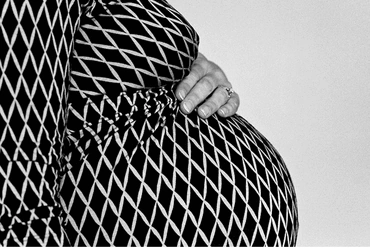1
And Jethro, priest of Midian, the father-in-law of Moses, heard all that God had done for Moses, and for Israel His people, for Jehovah had brought··out Israel from Egypt.
2
And Jethro, the father-in-law of Moses, took Zipporah, the wife of Moses, after her being··sent away;
3
and her two sons; of which the name of the one was Gershom*; for he said, I have been a sojourner in a foreign land;
4
and the name of the one was Eliezer; Because the God of my father was my help, and rescued me from the sword of Pharaoh.
5
And Jethro the father-in-law of Moses came, and his sons, and his wife, to▵ Moses, to▵ the wilderness where he was encamped at the mount of God.
6
And he said to Moses, I thy father-in-law Jethro am come to thee, and thy wife, with her two sons with her.
7
And Moses went out to meet his father-in-law, and bowed· himself ·down, and kissed him; and they asked, a man◦ to his companion, as to peace; and they came into the tent.
8
And Moses recounted◦ to his father-in-law all that Jehovah had done to Pharaoh and to the Egyptians for the cause◦ of Israel, all the weariness that found them in the way, and Jehovah rescued them.
9
And Jethro rejoiced over all the good that Jehovah had done to Israel, who rescued them out of the hand of the Egyptians.
10
And Jethro said, Blessed be Jehovah, who has rescued you out of the hand of the Egyptians, and out of the hand of Pharaoh; who rescued His people from under the hand of the Egyptians.
11
Now I know that Jehovah is greater than all the gods; in the thing in which they have been presumptuous over them.
12
And Jethro Moses’ father-in-law took a burnt··offering and sacrifices for God; and Aaron came, and all the elders of Israel, to eat bread with Moses’ father-in-law before God.
13
And it was, on the morrow, and Moses sat to judge the people, and the people stood over Moses from the morning until the evening.
14
And the father-in-law of Moses saw all that he did for the people, and he said, What is this word that thou doest for the people? Wherefore sittest thou◦ by··thyself, and all the people standing··over thee from morning until evening?
15
And Moses said to his father-in-law, Because the people come to me to inquire of God;
16
when◦ they have◦ a word, it comes to▵ me; and I judge between a man◦ and his companion, and I make··known the statutes of God, and His laws.
17
And Moses’ father-in-law said to him, The word that thou doest is not good.
18
Fading thou wilt fade away, both◦ thou◦, and◦ this people who is with thee; for the word is too heavy for thee; thou art· not ·able to do it alone.
19
Now hear my voice, I will counsel thee, and God shall be with thee: be thou◦ for the people next··to God, and bring thou◦ the words to▵ God:
20
and warn them of the statutes and the laws, and make known to them the way in which they must walk◦, and the deed that they must do.
21
And thou◦ shalt behold from all the people men◦ of force, fearing God, men◦ of truth, hating gain; and thou shalt set of them for princes of thousands, princes of hundreds, princes of fifties, and princes of tens;
22
and let them judge the people in every time; and it shall be that they shall bring every great word to▵ thee, and every small word they shall judge; and the work shall lighten from upon thee, and they shall bear with◦ thee.
23
If thou do this word, and God have commanded thee, then thou shalt be··able to stand, and also all this people shall come upon its place in peace.
24
And Moses hearkened to the voice of his father-in-law, and did all that he had said.
25
And Moses chose men◦ of force from all Israel, and put◦ them as heads over the people: princes of thousands, princes of hundreds, princes of fifties, and princes of tens.
26
And they shall judge the people in every time, the hard word they shall bring to Moses, and every small word they shall judge.
27
And Moses let his father-in-law go, and he went to himself to his own land.







